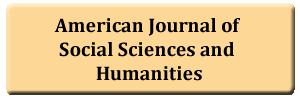Entrepreneurship Education Curriculum Content: Beyond Literacy and Numeracy for Functional Education in Tertiary Institutions in Nigeria
DOI:
https://doi.org/10.20448/804.4.2.191.199Keywords:
Entrepreneurship, Education,Curriculum, Content, Literacy, Numeracy,Functional, Tertiary institutions.Abstract
This study examined the relationship between entrepreneurship education curriculum content: beyond literacy and numeracy, for functional education in tertiary institutions in Nigeria. One objective, one research question and a null hypothesis was formulated to guide the study. Ex-post facto research design was used for investigation. The population of the study comprised all the 387 postgraduate students in the Faculty of Education, Universities of Uyo, and Calabar. The sample for this study consisted of 197 postgraduate students, selected using multi-stage sampling technique. A researcher-developed instrument titled “Entrepreneurship Education Curriculum Content Questionnaire (EECCQ)’’ and ‘Functional Education in Tertiary Institutions Questionnaire (FETIQ)” were used for data collection. The reliability of the questionnaire was determined using Cronbach’s Alpha analysis and the indices for both instruments were .855 and .896 respectively. The coefficient (R) of simple linear regression was used to answer the research questions, while simple linear regression analysis (F) was used to test the null hypothesis at .05 level of significance. The finding was that, there is a significant relationship between entrepreneurship education curriculum content, and functional education in tertiary institutions. It was concluded that, entrepreneurship education curriculum content with adequate practical experiences could impact on functional education and thereby promote graduates self-employment. It is recommended therefore that, the curriculum planners/developers should revisit the entrepreneurship education curriculum content to include practical experiences. This will help to enlist learners’ interest and equip them with useable skills for useful living in the society, which will reduce the rate of unemployment amongst graduates in Nigeria.



